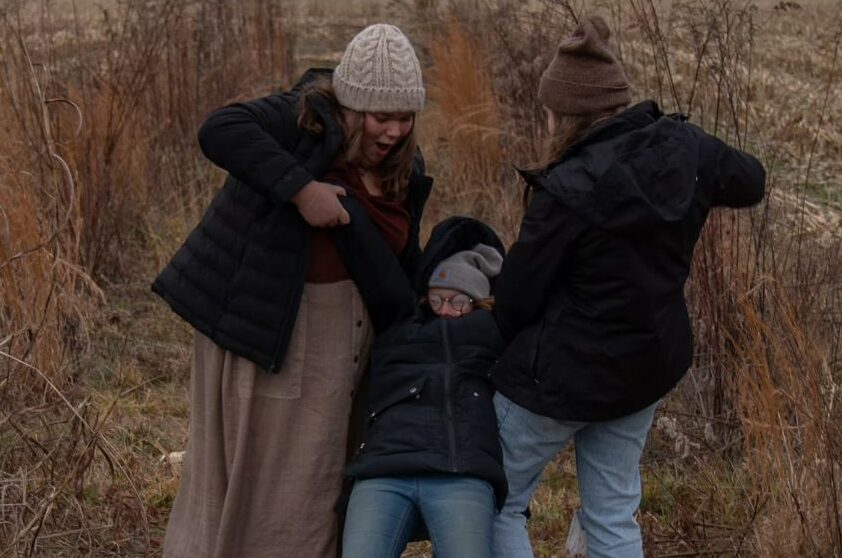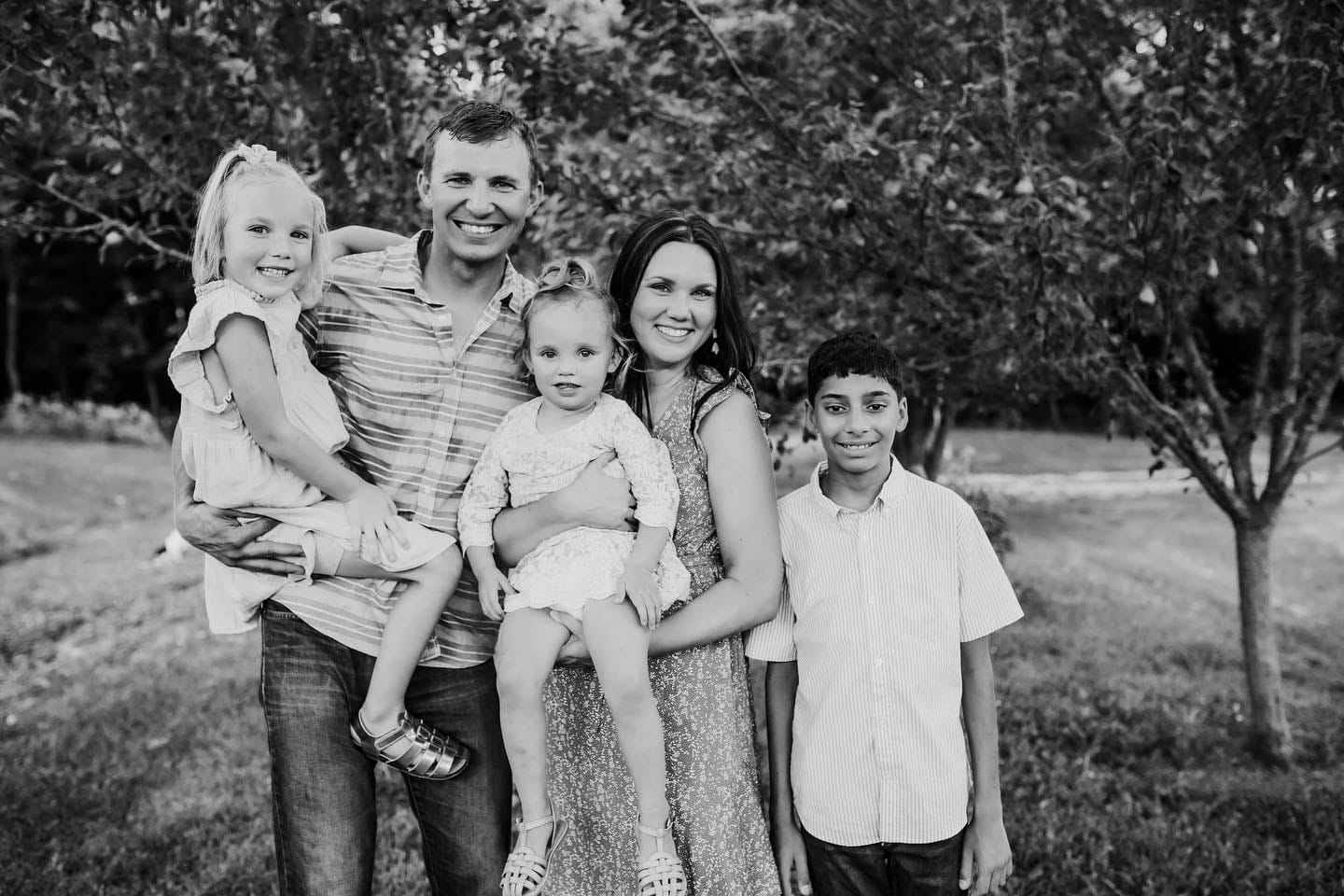Written by Cathleen Bearse
You may have heard it said that “it takes a village to raise a child”. Well, as a foster mama, I can DEFINITELY attest to the importance of this.
As I write this, I immediately think of all the family and friends we are so blessed to have as a part of our village. And I know deep down that we wouldn’t have made it this far if it wasn’t for those incredible people, supporting us in huge important ways, and even small ways – which are still important! – along our family’s journey. From lifting us up in prayer, to listening empathetically as I processed all of my feels, to sending an edible arrangement on a particularly sad day…these are the exact types of support and kindnesses that mean the world to someone in the throes of foster care.
Today, I’d like to give you three important reasons why you need to have a village of supporters in foster care, as well as a few places to access these supports! We’re all in this together, and we weren’t meant to do this alone (and thankfully, we don’t have to!).
FOSTER CARE TAKES A LONG TIME (USUALLY)
I’m sure some people have had quick, easy, painless foster care placements wherein there was a plan from the get-go that never changed, and no doubt in anyone’s mind where the child in care would ultimately end up. But…those are usually the exceptions, not the rule. In my state, the aimed-for average length of time in care for each child is 15 months. But anyone will tell you, it usually takes way longer. Our son was in foster care from day one, and we officially adopted him just after his second birthday (in part, due to the courts being closed because #pandemic). Our daughter has been in foster care from day one, and we have no idea when or if we will be able to adopt her, but our social worker has informed us that those cases won’t even be heard until the end of 2022, at the earliest.
So yeah, foster care takes a LONG time.
And if you think about it, it’s not just a long time of waiting to see what will happen. It’s that, AND social workers coming in and out, meetings with lawyers and caseworkers, visits with bio family members, labwork, appointments, etc. etc., etc. It’s a lot. Worth it? ABSOLUTELY. But still, it’s a lot.
When you’re going through fifteen plus months of all that, you’re going to need supporters. Cheerleaders. People to lift you up on hard days and remind you why you’re doing all this. People who will remind you that it will all be worth it in the end. People to remind you that your heart is getting stomped on for the most beautiful reason – so that an innocent child can thrive in safety and love.
THINGS ARE RARELY CERTAIN IN FOSTER CARE
I recently polled foster mamas on my Instagram stories, asking them “What is your biggest struggle with foster care or adoption right now?” The bulk of responses I received said something along the lines of:
“Constant uncertainty. Will the visit happen? Was told she’d move to grandpa last August?”
OR…
“The not knowing what the plan actually is.”
As a therapist, I know that what causes anxiety in most people IS the unknown. And with foster care, well, that’s what you’re signing up for. You’re signing up for pretty much never knowing, or never being able to safely assume anything about what’s going to happen next for your family or the children in your care until it actually does happen.
But just because it’s what we signed up for, doesn’t mean it’s easy. Oh heck no it’s not.
So because foster care is (usually) riddled with uncertainty and the unknown, we need people to support us and make space for that. We need people to listen and understand that while we may look like we’re doing just fine on the outside, that is not always the case on the inside. My therapist described it very well during a session when he said, “it sounds like foster care is a pebble stuck in your shoe…you are always aware of it, even if no one else is; you always feel it, even if you’re still able to carry on with your normal daily life.”
YEP. Exactly.
The constant uncertainty, the pebble in our shoe heightens our awareness and need for people to come alongside us on this journey with support, encouragement, and love.
THERE ARE LOTS OF FEELINGS INVOLVED, AND THEY DESERVE TO BE FELT
You don’t have to be a foster parent very long before you realize (and start to experience) that it comes with ALL the feels. Excitement, hope, joy, sadness, grief, worry…anger, guilt, frustration…oh yes, they all show up at some point.
Truthfully, this is the main reason why it’s important to have a village: there will be some people you need to just make you laugh on a crappy day. You might need other people to sit silently beside you while you cry when court turns out differently than you expected. Other times, you might just need someone to say, “hey…I see you. I know this is hard. What do you need right now?” And you may or not be able to answer that question right away, but you need people to understand that, too.
In foster care (and in life), it’s important that we don’t put all our emotional support needs in one basket. Some people are the “make us laugh people.” Some people are the “I brought you dinner” people. Some people are the “Have you prayed for the bio family lately?” people. And we need them all. They all make us better, and they all help us through this crazy, beautifully broken ride called foster care.
3 PLACES TO FIND SUPPORT, IF YOU FIND YOURSELF NEEDING MORE
- A therapist – ideally one who is familiar with foster care!
- Foster care support groups in your area – these can be hit or miss, but you’ll never know until you try. Contact your caseworker or local DCF office or private agency for a list of supports available to foster parents.
- Local churches and other places of worship often have ministries or programs to support foster and adoptive parents. Even if YOUR church doesn’t offer something like this, don’t be afraid to check out other churches in your area and attend one of their groups. It’s allowed, I promise.
Or, even better, why not start up a group in your own place of worship? Chances are, you’re not the only one longing for more support on your foster care journey.
I hope this post helps you understand why you need a village of supporters in foster care, and encourages you to keep looking until you find the exact level of support you need.



